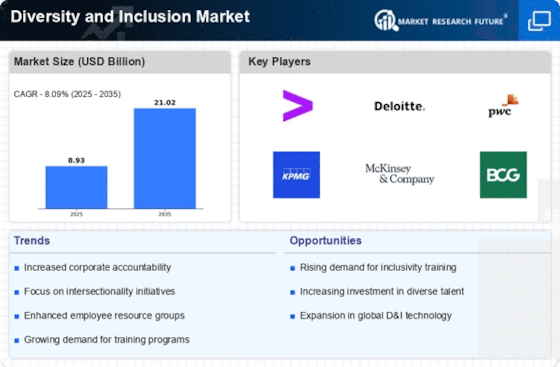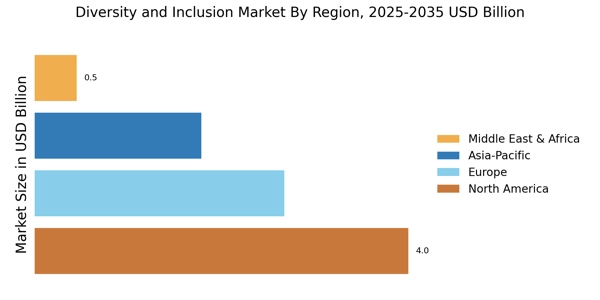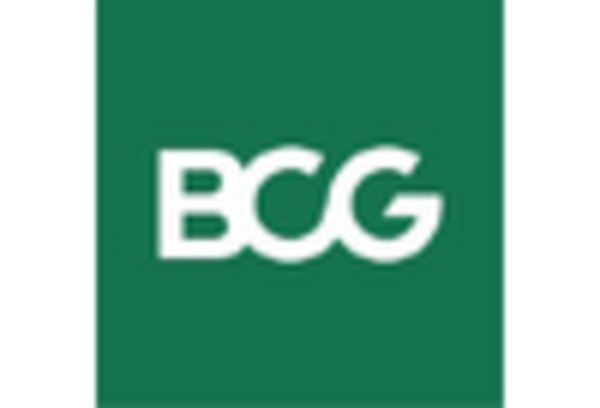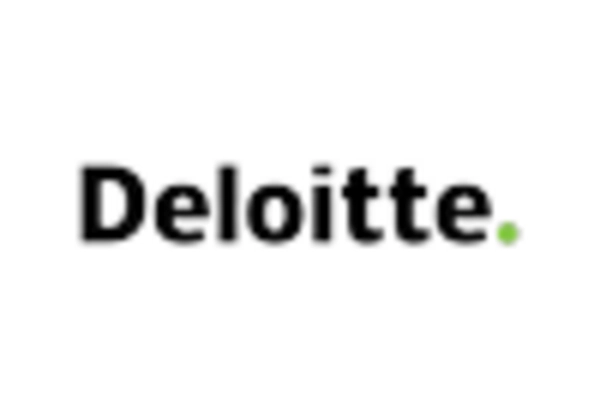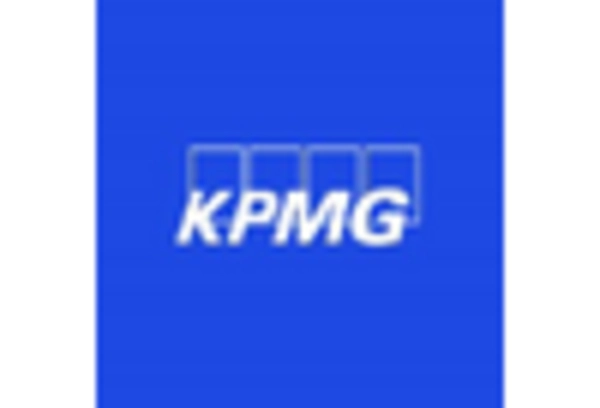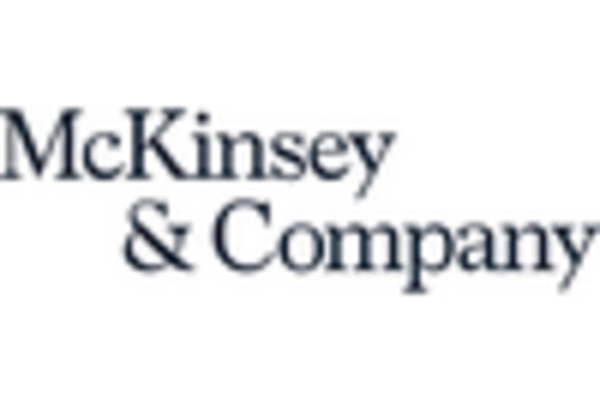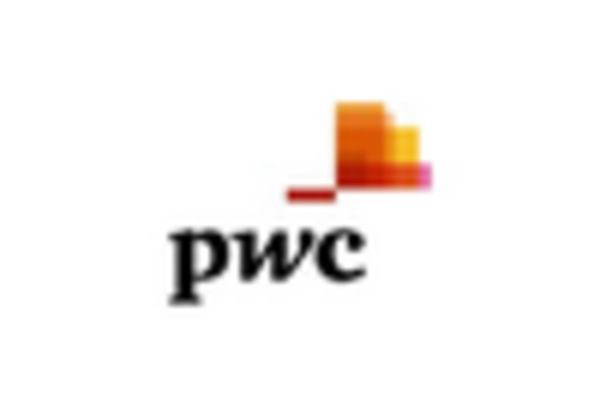Regulatory Compliance and Legal Frameworks
The Diversity and Inclusion Market is increasingly influenced by regulatory compliance and evolving legal frameworks. Governments and organizations are enacting laws that mandate diversity in hiring practices and workplace inclusivity. For instance, legislation in various regions requires companies to report on diversity metrics, thereby fostering a culture of accountability. This regulatory environment compels organizations to adopt comprehensive diversity strategies, which in turn drives demand for consulting services and training programs. As a result, the market for diversity and inclusion initiatives is projected to grow, with estimates suggesting a compound annual growth rate of over 10% in the coming years. Organizations that proactively align with these regulations not only mitigate legal risks but also enhance their reputational capital, making compliance a critical driver in the Diversity and Inclusion Market.
Corporate Social Responsibility Initiatives
Corporate Social Responsibility (CSR) initiatives are becoming a pivotal driver in the Diversity and Inclusion Market. Companies are increasingly recognizing that a commitment to diversity and inclusion is integral to their CSR strategies. This shift is not merely a trend; it reflects a broader societal expectation for businesses to contribute positively to social equity. Organizations that prioritize diversity are often viewed more favorably by consumers, which can lead to increased brand loyalty and market share. Data indicates that companies with robust diversity programs experience higher employee satisfaction and retention rates, which can enhance overall productivity. As businesses strive to align their operations with social values, the demand for diversity and inclusion solutions is likely to escalate, further propelling growth in the market.
Talent Acquisition and Retention Strategies
The competition for talent is intensifying, making effective talent acquisition and retention strategies a crucial driver in the Diversity and Inclusion Market. Organizations are increasingly aware that diverse teams foster innovation and creativity, which are essential for maintaining a competitive edge. Research indicates that companies with diverse workforces are 35% more likely to outperform their competitors in terms of financial returns. As such, businesses are investing in diversity recruitment initiatives and inclusive workplace cultures to attract and retain top talent. This trend is particularly pronounced in industries facing skill shortages, where diverse hiring practices can broaden the talent pool. Consequently, the emphasis on talent acquisition and retention is likely to stimulate growth in the Diversity and Inclusion Market, as organizations seek to implement effective strategies that align with their business objectives.
Technological Advancements in Diversity Solutions
Technological advancements are playing a transformative role in the Diversity and Inclusion Market. Innovative tools and platforms are being developed to facilitate diversity training, bias mitigation, and inclusive hiring practices. For instance, artificial intelligence and data analytics are increasingly utilized to identify and eliminate biases in recruitment processes, thereby promoting fairer hiring outcomes. Additionally, technology enables organizations to track diversity metrics more effectively, allowing for data-driven decision-making. The integration of these technological solutions is not only enhancing the efficiency of diversity initiatives but also providing organizations with the insights needed to foster an inclusive workplace culture. As technology continues to evolve, its impact on the Diversity and Inclusion Market is expected to grow, potentially leading to new opportunities for businesses to enhance their diversity strategies.
Consumer Demand for Inclusive Products and Services
Consumer demand for inclusive products and services is emerging as a significant driver in the Diversity and Inclusion Market. As societal awareness of diversity issues grows, consumers are increasingly seeking brands that reflect their values and promote inclusivity. This shift in consumer behavior is prompting companies to develop products and services that cater to diverse demographics, including various ethnicities, genders, and abilities. Market Research Future suggests that brands that prioritize inclusivity can enhance customer loyalty and drive sales. Furthermore, organizations that actively engage in diversity initiatives are often perceived as more trustworthy, which can lead to a competitive advantage. As businesses respond to this consumer demand, the Diversity and Inclusion Market is likely to experience substantial growth, driven by the need for brands to align their offerings with the evolving expectations of their customer base.


